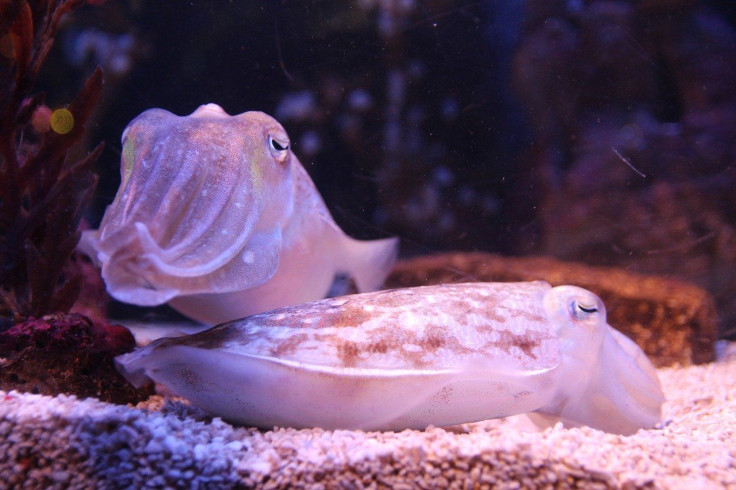Not Just For Kids: Cuttlefish Passed The Famous 'Marshmallow Test'
KEY POINTS
- Researchers conducted a version of marshmallow test for cuttlefish instead of kids
- The cuttlefish displayed self-control and intelligence in a learning test
- Link between self-control and intelligence hadn't been observed previously in a non-primate
How intelligent are cuttlefish? It turns out these marine mollusks can even pass the "marshmallow test" that's usually intended for human children.
It is the first time that the link between intelligence and self-control is found in a non-primate.
Marshmallow Test For Cuttlefish
Most kids love sweets, which is why the marshmallow test is one of the simple ways to test a child's self-control. The test's idea is simple: children are given a choice to either get one marshmallow immediately or wait a while to get two marshmallows.
In a new study, published in Proceedings of the Royal Society B, researchers also conducted their own version of the test, but with shrimp and prawn instead of marshmallow and cuttlefish as the test subjects.
For the experiment, the cuttlefish were presented with two food options: a king prawn and a live grass shrimp, the latter being the cuttlefish’s food of choice, the Cambridge University news release explained. Similar to the original experiment, the cuttlefish could immediately eat the prawn but had to wait to eat the live grass shrimp.
The researchers tested six cuttlefish, with the waiting time for the live grass shrimp increasing by 10 seconds each time.
Self-Control In Cuttlefish
Incredibly, all of the cuttlefish waited for the grass shrimp and ignored the king prawn. In fact, the researchers noted that the cuttlefish even turned away from the king prawn like they were distracting themselves.
The cuttlefish with the most self-control waited for an impressive 130 seconds, an ability that Cambridge University noted is comparable to that of large-brained animals such as chimpanzees.
"It was quite astonishing that the cuttlefish could wait for over two minutes for a better snack. Why would a fast-growing animal with an average life-span of less than two years be a picky eater?" study first author, Dr. Alexandra Schnell of Cambridge University's Department of Psychology, said in the news release.

As the Marine Biological Laboratory (MBL) explained in a news release, delayed gratification can strengthen bonds in humans. For instance, an individual may opt to wait before eating so that another can go first. MBL added that it could also be a trait of tool-building animals since they first have to make the tools before hunting and getting to eat.
However, cuttlefish are not social animals. They don't build tools, too. As such, the researchers suggest that the self-control they displayed could be a result of the fact that they have to camouflage to survive. Cuttlefish are known for their exceptional camouflage, and they can stay camouflaged for a long time to avoid predators.
"They break camouflage when they forage, so they are exposed to every predator in the ocean that wants to eat them," Schnell said, according to the MBL news release. "We speculate that delayed gratification may have evolved as a byproduct of this, so the cuttlefish can optimize foraging by waiting to choose better quality food."
First Seen In Non-Primate Animals
The researchers also found that the cuttlefish that waited for the longest time also performed better in learning tasks. This not only showed their intelligence but provides evidence of a link between their intelligence and self-control. According to MBL, this marks the first time the link has been made in an animal that's neither a human nor a chimpanzee.
Since this is the first instance where scientists linked intelligence and self-control in a non-primate species, MBL noted that this is an "extreme example" of convergent evolution, or the phenomenon wherein different species with different evolutionary histories end up developing the same feature.
© Copyright IBTimes 2025. All rights reserved.






















